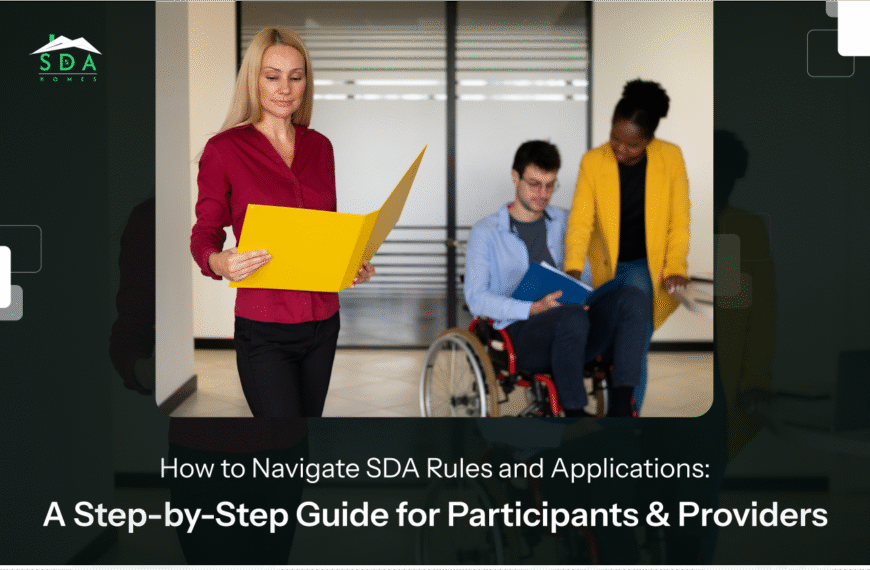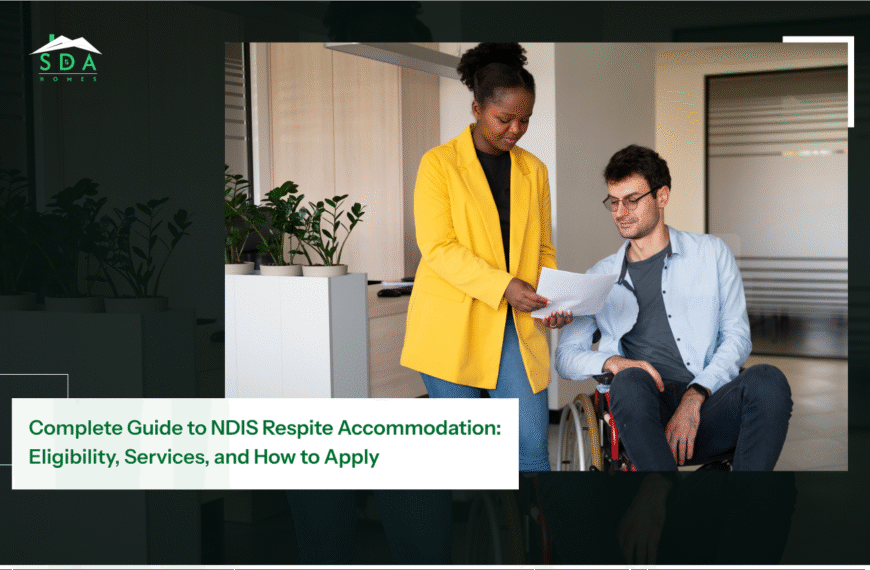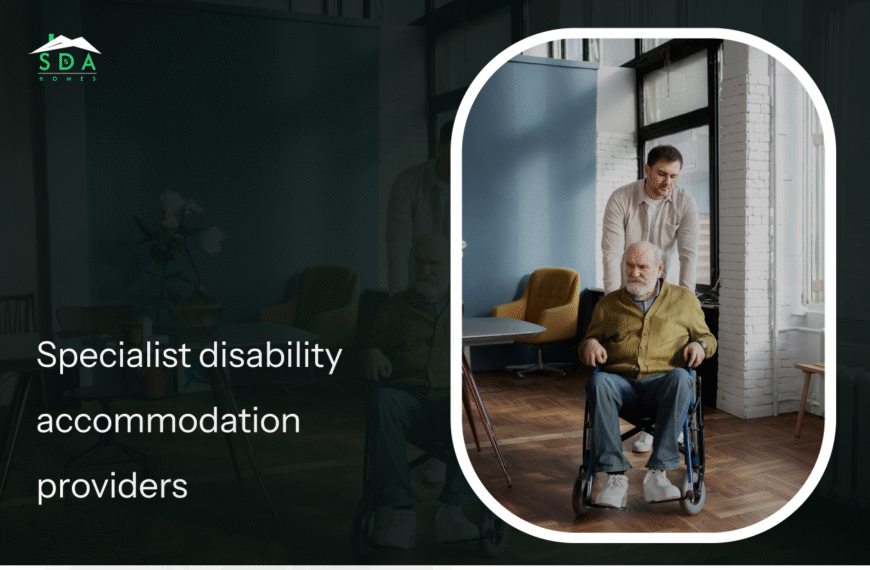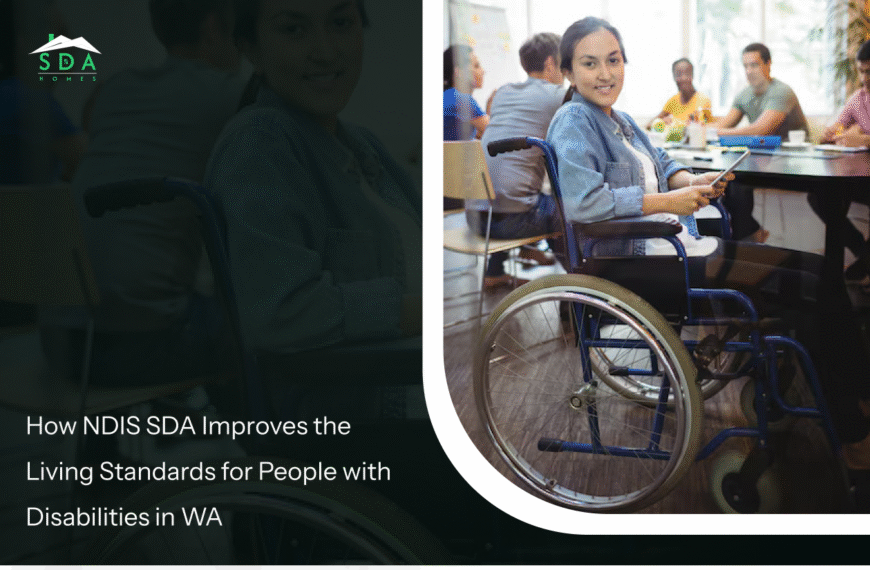Introduction
Finding the right Specialized Disability Accommodation (SDA) through the National Disability Insurance Scheme, acronymed as NDIS in Perth, can be challenging. Hence, it is always a good decision to first understand which option suits your needs by evaluating each option’s definition, pros, cons, and other important aspects. The review can greatly improve your daily life, especially for people with significant disabilities in Perth. Once you understand the differences between shared and individual SDA Housing in Perth, you can choose the best fit for your goals.
Shared and individual SDA Housing in Perth options suit different lifestyles, care needs, and preferences. This blog will walk you through both types of housing, explain their pros and cons, and help you decide which one best supports your needs and independence.
What is Shared SDA Housing in NDIS?
Shared Specialised Disability Accommodation (SDA) housing is for groups of four or five people in an accessible, modified home. This setup creates community, support, and shared experiences. Your NDIS plan covers the cost, and you get adaptive features, shared spaces, and on-site care.
Pros of Shared SDA Housing
- Residents (NDIS participants) experience a strong sense of community and belonging. It forges meaningful relationships with housemates.
- You share all costs with your mates, including rent, maintenance, and services, which are more affordable for most people than single-occupancy options.
- You participate in several group activities and joint support, which often contribute to mental well-being and reduce feelings of isolation.
- You will receive collective care services that can streamline your day-to-day assistance.
Cons of Shared SDA Housing
- Privacy is sometimes limited because of shared spaces and group routines. It can be challenging if you prefer more time alone.
- Decisions about the household and daily schedules are often made as a group, so you might have less personal control.
- At times, you might disagree with other residents or find it hard to get along with them. Support staff are available to help resolve any issues that arise.
What is Individual SDA Housing in NDIS?
Individual SDA Housing in Perth is for people who prefer to live on their own. These homes are designed for one person and offer plenty of privacy. You can have adaptable features, easy access, and support that is tailored to you, helping you stay independent each day.
Pros of Individual SDA Housing
- Residents (NDIS Participants) enjoy complete control over their household routines, lifestyle, and personal space.
- You get the most privacy, with no interruptions from others, and you can set up your home the way you like.
- Support services are tailored to your needs and ensure the right care and comfort.
Cons of Individual SDA Housing
- Living alone usually costs more, since you pay rent, utilities, and maintenance on your own. Consider if this fits your budget.
- You might sometimes feel lonely, as there are fewer chances for casual social interaction compared to group housing.
- You are responsible for all household tasks, which can be challenging if you do not have extra help.
Key Factors Comparison Between Shared and Individual SDA Housing in Perth
1. Privacy
- If you need uninterrupted privacy, individual SDA accommodation is your choice.
- Shared accommodation offers some privacy, but you must be flexible and prepared to share common areas with others.
2. Social Interaction
- If you prefer companionship, shared housing offers daily opportunities to socialize and build friendships.
- Individual housing offers limited social opportunities.
3. Autonomy
- Individual SDA Housing in Perth gives you full decision-making autonomy, while in shared housing, decisions are made collectively, so you have less control.
- In shared housing, you follow group routines, but you still have a voice in daily decisions along with your housemates.
4. Cost
- Shared housing makes expenses more affordable by splitting costs, while individual housing usually costs more as you cover everything yourself.
- If you have the resources and prefer to live alone, private accommodation might cost you extra but bring the added privacy and independence.
5. Household Responsibilities
- In shared flats, housework is shared, which makes your responsibilities easier.
- When you live alone, you are bound to take care of all the household chores yourself, so you may need to stay organized or ask for help when you need it.
6. Companionship
- Shared housing provides built-in companionship and regular support.
- If you live alone, you may need to find social opportunities outside your home.
7. Support Customization
- Support in shared housing is designed for the group, so services are generally standardized, unlike individual housing, where support is customized.
- Individual living arrangements offer bespoke support that adapts to your health, lifestyle, and changing needs.
Making Your Choice Between Individual vs Shared SDA Housing
Deciding between shared and individual SDA housing in Perth depends on your values, physical needs, budget, social preferences, and future plans. This blog covers important details about both options. It’s also a great idea to have a conversation with your NDIS planner, family members, or support coordinator to figure out which option aligns best with your goals and everyday lifestyle. Think about things like privacy, how independent you want to be, costs, and the kind of community support that’s available to help you make the best possible decision.
Ending Note
Both SDA housing choices in Perth provide comfort, independence, and a sense of community. Whether you lean towards a vibrant group setting or prefer a more private space, the NDIS options available in Perth can cater to your needs. Take some time to think about what’s most important to you, chat with professionals, and pick the option that feels right for you. You can schedule a consultation call with SDA Home, one of the leading SDA housing service providers in Perth, WA!
FAQs
Q1: Is SDA accommodation in Perth only for physically disabled people?
In accordance with NDIS criteria, SDA accommodation is available to participants with significant and permanent disabilities, including physical, intellectual, and cognitive impairments.
Q2: Can I change my type of residence if I move to the NDIS later?
Yes, changes are possible depending on changing needs, funding allocation, and personal circumstances.
Q3: How do I apply for SDA housing in Perth?
Applications are made through your NDIS plan, with support from coordinators and service providers to match you with suitable options.
Q4: Are there waiting lists for SDA housing in Perth?
Yes, waiting periods may apply depending on demand, funding, and availability of housing types in your preferred locality.














